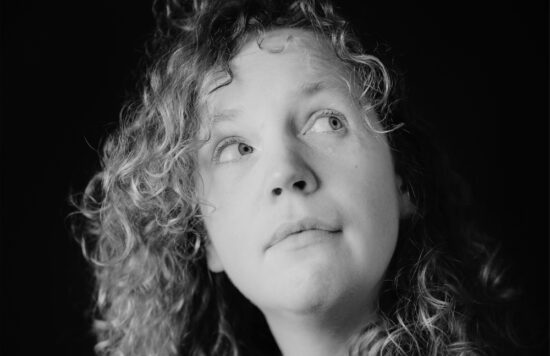Full Report
Please note: This is a sample report, designed to give you an idea of the structure and content of our reports. Every book is different, though, and our readers will always try to tailor their report to best serve your particular needs. If there’s something you’d like your reader to pay special attention to, just let us know when you submit your manuscript.
SYNOPSIS
A brief summary of your plot; this may seem unnecessary – you wrote the thing, you know what happens! – but you might be surprised at how useful it is to see what the reader thinks your book is really about and whether it’s as clear to them as it is to you how the story unfolds.
Jane is a marketing assistant at Impact, a leading London publishing house, her thirtieth birthday rapidly approaching. When her boss, Kevin, sends her out on tour with their hot new debut author, Santi, Jane sees an opportunity to improve her own standing in the company, whilst undermining Kevin (and of course, it doesn’t hurt that she finds Santi wildly attractive).
Santi’s novel, The Wind Cries Freedom, has been published to international acclaim, but Jane is pleasantly surprised to find that he is modest and polite; often uncomfortable with praise. Set in Santi’s home country, the novel has also garnered much attention for its criticism of the tyrannical regime in power there, and a small spark of revolution has been ignited among the citizens.
As they make their way to bookshops around the country, Santi and Jane grow close. One night, over an expensed dinner at Bella Italia in Plymouth, Santi overindulges on house red and confesses a terrible secret to Jane – that he did not write the novel. The actual author is Theo, the operations assistant at Impact, who also turns out to be a poet and propagandist. Santi feels guilty that he is receiving praise for Theo’s beautiful writing, though he feels it is desperately important that the novel’s message is out in the world, whoever’s name it has to appear under.
Jane feels incredibly conflicted by this knowledge – on the one hand, coming forward with this fact will jeopardise the book, Impact, and Jane’s future at the company. But Santi’s message is spreading, with civil unrest in his country, and Jane begins to suspect that they are being followed; that perhaps an assassination may be attempted – with her directly in the firing line.
Unsure what to do, Jane calls Kevin for advice. She is surprised when he assures her that everything will be fine, that she should keep quiet and let The Wind Cries Freedom complete its important job. That evening, Jane and Santi are attacked at his appearance at Waterstones Mansfield. They’re saved by Theo, who has been following them. Once he has taken them to safety, he reveals that he has overheard Kevin on the phone in his office, and that Kevin is actually a mole from MI6, placed at Impact to ensure that The Wind Cries Freedom is published and the regime overthrown.
OVERVIEW
The reader will outline the key points their report will cover
Unbound Proof is a thriller with plenty of market potential. There are the beginnings of a smart, slick storyline here, with lots to enjoy. Currently, though, the novel is held back by its characterization and pacing, and some work could be done to make these elements work as hard as the concept. There are also some issues with plausibility which could be ironed out in the next draft.
REPORT
Here the reader will look in detail at the key elements of your novel – character, plot, dialogue, language – and suggest the novel’s strengths and the areas which might need some attention
This is a promising novel, with much to recommend it. There’s a nice level of humour running under the action and it’s a genuinely thrilling idea – the mix of politics and publishing is an interesting one and I felt like I hadn’t seen too much of it before. I wondered if the author has worked/works in publishing, as there was some good detail about the work of a marketing department, and all the activity that goes on behind the scenes with a publicity campaign, which really lent the story authenticity – it made me feel, starting out, that I was in safe hands.
Having said that, I did have some concerns about the voice of the novel. Jane is perhaps not the most compelling narrator – although we do start the novel with a strong sense of who she is (feeling undervalued at work; worried about her lack of husband and house; a bit of a party girl), by the end, I felt as though her voice had paled a little. She occasionally makes sharp and funny remarks – referring to the hotel manager as ‘post-bag saggy’; commenting on the poor quality of wine at book events – but more often, she sinks back into a very neutral voice, a tone perhaps more suitable for a third-person narration. If we’re hearing the story from Jane’s point of view, we really want to hear her point of view – how does she feel as Santi’s hand brushes hers in the taxi? What’s running through her mind as she unravels the story behind The Wind Cries Freedom? How does she feel about Kevin; about Theo? All of this felt fairly underdone, with Jane often simply recounting events for us, without adding any of her own feelings or thoughts to the mix.
While Santi is a nicely-drawn and believable character – softly-spoken but fierce in his beliefs – too little time is spent on Theo for the reveal of his involvement to have the necessary impact. It would be good to see him appear in the earlier scenes of Jane at work – what is his day-to-day role there? Presumably he has been hired by Kevin – do they interact? Could we see him in a private meeting in Kevin’s office in an early scene; one that wouldn’t really be noticed on a first read, but would suddenly become meaningful on a second? The key to a good thriller is to leave clues that the reader will only recognise as clues once the story has begun to unfold, so you need to make those early chapters work hard for you. At the moment, we have Kevin as a fairly laidback boss who spends a lot of time in his office – that makes sense but it’s also not very interesting. Could we have subtle hints that he has something else going on? It’s implied early on that Kevin has made enemies in the company (which seems unwise of him!) – it would be fascinating to see a little more of that brought to the fore. This may also help with the fleshing out of Jane’s voice – what are her opinions? Does she like the people Kevin doesn’t? Or does she sometimes agree with him? And does she like (has she actually read) The Wind Cries Freedom? There’s opportunity here for some more of that dry humour you do so well, as well as development of your key characters, and upping of the dramatic tension.
Whilst looking at the opening chapters, it’s also important to make sure that the pacing is exactly right here (and throughout the novel). Although you say in your covering letter that you see this as a tense thriller, at the moment the first two-thirds unfold almost leisurely – we don’t get a sense that anyone has a secret until page 153, and up until then, it feels almost like a political novel – with hints of romance – rather than a thriller. Instances like this, in the hotel bar:
Santi leant over, a hand tangled in his soft curls. ‘Let’s not talk about me,’ he said.
feel a little wasted – we could definitely get more of a sense of misgiving in these early interactions. What if Santi can’t quite bring himself to meet her eye? What if he seems nervous or uncomfortable, rather than just polite/gentlemanly? By this point, you really want your reader to feel as if they can’t quite trust anyone – you can do this in many ways, from a character’s body language, to the things they say (or the things they stop themselves from saying); even, in Jane’s case, by the things they think. Foreshadowing is very important here; if you can subtly suggest that things are not as they seem, then that inevitable unravelling that happens after the Bella Italia dinner will become all the more thrilling. As it is, the last third is over all too quickly – we’re rushed from revelation to deliberation to assassination, all in about 50 pages, with no real time to take in the magnitude of it all. This reduces the potential dramatic impact of that final fight scene between Theo and the assassins, and makes the ending feel very abrupt.
I did feel that at times, plausibility was really stretched a little too thin. Why does the novel need Santi as its author? Why can’t Theo just write it himself? You touch upon the idea that Santi is an appealing face and voice for the public, but this isn’t explored enough – could you perhaps go even further? Is Santi in fact the only person who could have such an impact with this novel? Perhaps he could be a celebrity in his own country, or an influential blogger. There needs to be a real reason to drag him into things. Or is it perhaps because Kevin/Theo are looking for a scapegoat? Perhaps Theo knows that the author will almost certainly face assassination – has he lured Santi into taking a bullet for him? Why him? And what are Santi’s reasons for going along with the whole scheme – is it a love for his country? Or a desire for fame? These are almost certainly questions which Jane will have, and we can explore them with her.
I also wondered about Kevin’s role in proceedings – how long has he been at Impact, waiting to help this book into publication? I wonder if he’s in quite the right role – as Marketing Director, he wouldn’t be directly involved in the acquisition of The Wind Cries Freedom – he’d be involved in the meetings, of course, and could encourage things along that way (and would obviously play a large part in getting the book out into the world once published) but is that perhaps a bit of a sidelined role for MI6 to put him in? Would they not install him as the editor, the person who makes sure the book gets through acquisitions? Or in an even more senior position – Publisher, for example, or CEO? It just jarred a little to have him in that department, although of course it ties him to Jane. I wondered too if Theo being a trained ninja (can you be a ‘trained ninja’?) was taking things a little too far – this could do with some more explanation, or, alternatively, some simplification: Theo could perhaps outsmart the assassins in a different way, or sneak Jane and Santi out of the fire exit as they come through the front doors. As I mentioned earlier, I felt we could spend some more time with Theo in the earlier scenes, and perhaps have him feature more in Jane’s stream of consciousness – that may help make his secret skills a little more believable so it’s certainly worth looking at. Give us the sense earlier on that he’s a man who may be hiding many talents! Tonally, too, this element jarred a little for me – is this a comedy or a straight thriller? It felt slightly silly, which is fine – black comedy is a genre that can work really well – but there needs to be more of it if it’s going to work, or less if you want this to stand as a serious political thriller.
The ending does feel very sudden and somewhat unsatisfactory – I’m wondering if you’re planning to write a sequel? Even if that is the case, things do need to be tied up a little more thoroughly at the end of this one – you want your reader to be desperate to read the next instalment, rather than left feeling cheated. This felt a little like a standalone novel with the last fifty pages removed. You leave us with this tantalising reveal – that Kevin is some kind of undercover mastermind – but with no space to explore the implications of this. How does Jane feel? Especially when we consider that Kevin, advising her to keep her mouth shut about the true author of The Wind Cries Freedom, has essentially thrown her under the bus and left her open to assassination, even if it was for ‘the greater good’? And why has Theo had a change of heart and come to save them? What will the three of them do now? Will there be some kind of showdown? Or will Santi continue with his book tour, continue spreading the message of The Wind Cries Freedom?
Your writing style is lovely – full of energy and with a nice ear for dialogue. You do have a tendency towards long sentences, which sometimes works in the novel’s favour; you really give yourself the space to explore what a room looks like, or how a book-signing can go well or badly (I loved Jane’s rant about this, by the way!). But it would probably help the novel’s pace to mix that up sometimes with some shorter paragraphs to really pull us through the pages – bringing in more of Jane’s asides may help with this.
SUMMARY
Your reader will finish with final suggestions for your next draft
Much of the groundwork for a strong and commercial novel has been laid here, and you should be pleased with what you’ve achieved. In the next draft, I’d recommend you focus on really developing the characters, adding tension to the first two-thirds, and considering how to make that plot absolutely watertight. With those things in place, I feel confident that you will have a really original, compelling thriller that stands a good chance of attracting the attention of an agent.





